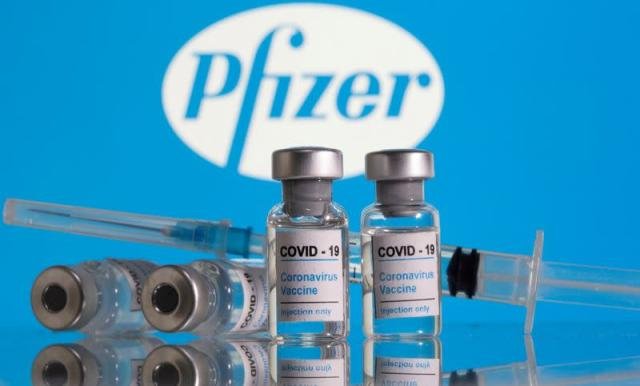
In the fall of 2020, Pfizer President and CEO Albert Bourla released an open letter to billions of people around the world who were investing their hopes in a safe and effective covid-19 vaccine to end the pandemic.
“As I said before, we are operating at the speed of science,” wrote Bourla, explaining to the public when they might expect a Pfizer vaccine to be licensed in the United States.
But for researchers who were testing Pfizer’s vaccine at various locations in Texas that fall, the speed may have cost data integrity and patient safety.
A researcher who was employed by a company that oversaw three clinical trial sites for Pfizer’s COVID-19 vaccine has made shocking revelations about inadequate on-site practices that call into question the integrity of Pfizer’s data and also raise concerns about the negligence of regulatory oversight .
Brook Jackson, a regional director employed by Ventavia Research Group, told the British Medical Journal that the company “falsified data, unblinded patients, employed inadequately trained vaccinators and was slow to follow up on adverse events,” reported in the Phase III pivotal study. Pfizer-BioNTech vaccine.
- Daniel Negreanu Finally Breaks His Losing Streak to Win Big in Super High Roller Bowl
- Baby Died After Her Mother Left Her On A Trip For Six Days
- OUTSPOKEN: Why Brazil Is The Most Important Country Right Now? By Will Lisil
- How To Build My Artistic Identity In The Metaverse?
- The Spike Protein From Covid Vaccine Can Persist In The Body For Months, Causing Debilitating Symptoms, According To A Study
Although Jackson repeatedly notified Ventavia of the problems, the company took no corrective action. That prompted Jackson to send an e-mail complaint to the Food and Drug Administration (FDA) – the country’s main regulatory body – in September 2020. But less than 24 hours later, Ventavia fired her in apparent reprisal.
On its website, Ventavia calls itself the largest private clinical research company in Texas and lists many awards it has won for its employment contract.
In another surprise, the FDA also failed to follow up on Jackson’s complaint. Although the regulator claims it does not have the manpower to actively monitor and investigate all clinical trials, one person told the BMJ he was surprised the agency did not inspect Ventavia, even after an official filed a complaint.
“You would think if there was a specific, credible complaint that they would have to investigate this,” said Jill Fisher, a former Ventavia employee.
The disclosures reported in the BMJ article are limited to three of the more than 150 test sites, which registered only 1,000 of the 44,000 participants overall.
However, the problems in Ventavia may have broader ramifications, including in the efficacy data.
Another official, on condition of anonymity, told the BMJ that Ventavia did not have enough people to collect swab samples from trial participants who reported symptoms consistent with COVID-19. Because the aim of the study was to identify laboratory-confirmed symptomatic COVID-19, the findings suggest that the data may have been skewed by samples that were not collected from participants who had symptoms similar to COVID.
Jackson, a regional director, had 15 years of experience coordinating and managing clinical research at the time she worked at Ventavia. However, her stint with the company lasted just two weeks, in September 2020 – at which time she said she had witnessed “lab mismanagement, patient safety concerns and data integrity issues.”
According to her, her superiors may be aware of these issues even before she is hired.
According to the BMJ, in a list of “action items” that circulated among Ventavia leaders in early August 2020, an executive identified three site staff members with whom the company needed to “review the journal issue electronic / data falsification, etc.” One of the team members was also “verbally advised to change the data and not notice the late entry,” indicated a note, according to the report.
Jackson also recorded a meeting with two Ventavia directors in late September 2020 – in which one of them admitted that the company “has not been able to quantify the types and number of errors they found when examining the testing paperwork for control of quality”. The executive adds: “In my opinion, it’s something new every day.”
After realizing that Ventavia was unlikely to make a course correction, Jackson said she was frustrated and documented several issues late at night, snapping pictures on her cell phone. She said she also provided dozens of internal company documents, photos, audio recordings and emails to the BMJ.
ICON, the contract research organization that Pfizer partnered with for the trial, may also be aware of the problems at Ventavia. ICON reportedly sent an email to Ventavia in September 2020 highlighting more than 100 queries outstanding more than three days old, while “[the] expectation … is that all queries will be responded to within 24 hours.”
FDA complaint
Concerned about the scale of the problems at the three test sites, Ventavia executives appeared to be waiting for an FDA inspection. During the meeting Jackson recorded in late September, one executive reportedly said, “We’ll get some kind of information letter, at least when the FDA gets here … know that.”
On September 25, 2020 — which was the next morning — Jackson said he called the FDA and warned the agency about unhealthy practices in Pfizer’s Ventavia clinical trial, and also articulated his concerns in an email complaint. Ventavia fired her that afternoon.
According to the BMJ, she listed a dozen concerns, including the following (cited literally):
1. Participants placed in a corridor after injection and not being monitored by clinical staff;
2. Lack of timely follow-up of patients who experienced adverse events;
3. Protocol deviations not being reported;
4. Vaccines are not being stored at proper temperatures;
5. Incorrectly labeled laboratory samples;
6. Directing the Ventavia team to report these types of issues;
Jackson received an email from the FDA acknowledging her complaint. The email said the agency could not comment on any investigation that might result from her complaint. She also got a call from an FDA inspector a few days later to discuss her report, but hasn’t heard anything since.
Separately, Pfizer submitted documents to the FDA that included details of a December 10, 2020 briefing, but did not mention the problems at the Ventavia sites.
The FDA published a summary of its inspection of the company’s trial in August 2021, after giving the Pfizer vaccine full (non-emergency) authorization. According to the BMJ, FDA officials inspected nine of the 153 test sites – none were from Ventavia.
Former employees corroborate allegations
Paul D. Thacker, the author of the BMJ article, also spoke with two former Ventavia officials who, he wrote, “confirmed broad aspects of Jackson’s complaint.”
One person who has worked on more than 50 clinical trials in his career said he “has never experienced such a ‘disorderly’ work environment” as at the Pfizer trial sites managed by Ventavia.
“I don’t think it’s good, clean data,” the official said of the numbers Ventavia generated for the Pfizer test. “It’s a crazy mess.”
The second employee also described the environment in Ventavia as unlike anything she had experienced in her 20 years of research. She added that after Jackson was fired, Pfizer was notified of problems in Ventavia and that an audit was carried out.
Since then, Pfizer has hired Ventavia as a research subcontractor for four other vaccine clinical trials. This includes trials of COVID-19 vaccines for children and young adults, pregnant women and a booster dose.
MW3 News tried to get more information with photos and e-mails, but until the end of the story we didn’t get any response.





